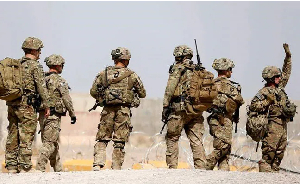Health News of Thursday, 20 December 2007
Source: GNA
Calls for proper analysis of current health services structure
Koforidua, Dec. 20, GNA - The Director General of Ghana Health Services (GHS), Dr Alias Sory has called for the shedding off of the old thinking in the analysis of the qualifications, responsibilities and rewards of the various groups in the GHS to help to remove the gaps in the salary structure which had been the basis for recent tensions in the Service.
He said the situation where the medical officer was the only degree holder and shouldered almost all the burden in the health delivery with the other health staff being mere auxiliary staff with no qualifications or at best certificate holders had changed and now there were other health staff holding their doctorate degrees in their professions just like the medical officer and equally shouldered great responsibilities in the provision of health services. Dr Sory was speaking at the formal opening ceremony of 31st Annual Conference of the Association of Health Service Administrators of Ghana(AHSAG) at Koforidua on Monday.
The four-day conference is being attended by health administrators throughout the country and is being organized under the theme: "50 years of Health Service Administration and Management in Ghana; Achievement Challenges and Prospects." Dr Sory reminded health workers that in the current situation any further demand for salary increase would mean that either other sectors of the economy would suffer or some sectors within the health service would have to be sacrificed for the funds for development of those areas to be diverted towards the payment of salaries. He said under the current situation, the best alternative was for health workers to efficiently manage their resources and to improve upon their service to be able to generate more resources to support their system and to have extra that could be used to improve upon their conditions of service. Dr Sory observed that luckily for the GHS, his suggestion was possible under the National Health Insurance Scheme system which was being operated all over the country. He reminded staff of the GHS that as public servants they could not participate in open political campaign and to continue to be in the service.
The Eastern Regional Minister, Mr Kwadwo Afram-Asiedu observed that the demand by health workers for better conditions of service was a daunting task for the Government and explained that currently personal emoluments of staff accounted for about 70 per cent of all budgetary allocation to the sector.
He said procurement of drugs and non-drug items accounted for over 80 per cent of the sectors vote on administration and services and therefore called on health service administrators to ensure effective administrative and financial measures at all levels of the health sector to make maximum use of available resources.
Mr Afram-Asiedu called on health administrators to give meaning to the decentralization process and health service reform by empowering all levels of the health service structures, especially those at the zonal and community levels to enable them to function effectively. The President of the ANSAG, Mr Augustine Yaw Boamah called on health service administrators, to avoid selfishness, graft and corrupt practices as well as get-rich-quick attitude which could eventually send them to face the Public Accounts Committee of Parliament. He called for a second look at the situation where health service administrators, who had been trained solely for the health sector as a manager was put in the same category of general paramedical staff, who had been trained not for the health sector specific but for the entire labour market. Mr Boamah said it took the blend of the clinical and non-clinical staff to manage a hospital and, therefore, called for careful examination of the apparent discrimination against non-clinical staff when recruitments were made to reflect the realities on the ground.
He also complained about the situation that some of the junior health administrators had been working for the past two years and yet had not been mechanized even though they had been working as full time administrators in some of the hospitals in the country. Earlier in a welcoming address, the Eastern Regional Director of Health Service, Dr Ebenezer Appiah-Denkyirah challenged Health Service Administrators to come out with an effective formula for assessing the output and the related reward for all categories of health staff.
In closing remarks, the Chairman of the function, Daasebere (Dr) Oti Boateng called for efforts to close up all avenues that could be used to dupe the NHIS. He also called on the health service to help to improve upon the processing of herbal medicine for it to be standardized for prescription at hospitals and other health facilities because large number of Ghanaians depended on herbal treatment when sick.




![Construction has stalled on the National Cathedral [Image Credit: Nipah Dennis/Al Jazeera] Construction has stalled on the National Cathedral [Image Credit: Nipah Dennis/Al Jazeera]](https://cdn.ghanaweb.com/imagelib/pics/588/58802743.295.jpg)





